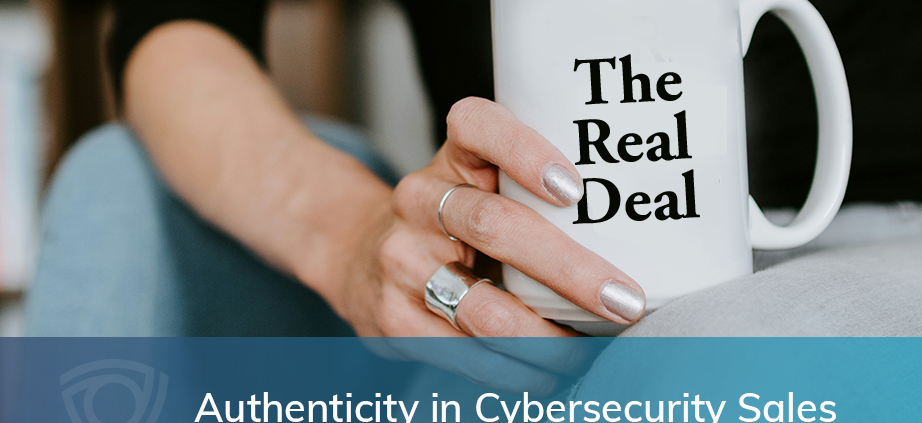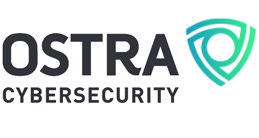The Real Deal: Building Authentic Relationships in Cybersecurity Sales
The Current Landscape of Cybersecurity Sales
As a sales leader in the IT channel, my LinkedIn feed is constantly flooded with posts from colleagues touting the latest buzzwords and themes. We’ve all seen topics like AI-assisted cold calling, tips for shortening the sales cycle through automation, and many other ways to remove humans from the sales process or move deals through the pipeline faster and easier. Another thing I see is posts by vendors showing off the amazing (in other words, very expensive and over-the-top) excursions or trips they are planning for their partners and clients.
But here’s one thing I don’t see too often in my feed: people being authentic. It’s rare to read a vulnerable post by a leader who is sharing a real struggle; or an account manager who understands that trust is the key to growing relationships; or an industry veteran who talks openly about how the IT industry is impacting our mental health. These topics are less sexy and probably don’t get as many impressions, likes, or comments. Yet these glimpses of reality are more likely to help you positively impact your partners or clients.
Why Authenticity Matters
Whether you’re aiming to strengthen your relationship with team members or deepen your connection with clients, below are some things I’ve learned as a sales leader that could help you become a more authentic and effective communicator—especially as an MSP delivering cybersecurity services.
Say YES to Authenticity in Sales
One of the most powerful, yet often overlooked, strategies is to lead with authenticity. In sales, authenticity isn’t just a buzzword or something you can “fake;” it’s a fundamental approach that can transform your relationships, boost your credibility, and drive sustainable success.
In the managed service provider (MSP) industry, where long-term client relationships and trust are paramount, the role of authenticity in sales leadership cannot be overstated. The MSP partners I meet and work with are not just selling a service; they are offering a partnership based on reliability, expertise, and mutual growth. In such a dynamic and service-oriented field, leading with authenticity is key to differentiating your business, retaining clients, and fostering a motivated, loyal team.
Authenticity means being genuine, transparent, and true to your values. As a cybersecurity sales leader, demonstrating authenticity can foster trust, inspire loyalty, and create a positive work culture. Clients and team members can sense when a leader is genuine, and this makes all the difference in building strong, lasting connections—not to mention loyal and happy clients.
Know Your Team
Working in technology, especially cybersecurity, I see the toll our work takes on my co-workers daily. At Ostra, our team works tirelessly to protect our clients’ networks 24/7/365 as we must navigate the constant stress of preventing an incident. The thought that one unseen anomaly or one missed red flag that could impact thousands or cause financial strain or ruin to the SMBs we strive to protect keeps our team on edge and up at night. Additionally, many of our teammates volunteer their time to participate in events such as hackathons, to help bring human traffickers to justice.
Our sense of mission drives our team to strive for perfection, but at a cost. Don’t get me wrong—much of this comes with the territory, as anyone working in cybersecurity knows. At Ostra, our leaders recognize this, and they are intentional about providing support. Read more about how IT leaders can prioritize mental health in this blog by our founder, Michael Kennedy.
One of the ways I personally stay connected with our team is by checking in with co-workers, making sure that they are taking care of themselves and feeling supported in whatever they are going through. Our team understands the importance of maintaining their mental and physical wellness and building the positive culture that we thrive in.
I see so many IT leaders struggling to manage not just the complexities of cybersecurity, but the added mental stress that comes with it. At Ostra, we can take that burden off you. (If this sounds like you and you’d like to talk through strategies, contact us anytime.)
Tips for Authentic Communication in Cybersecurity Sales
1. Stop Cold Calling
No one likes being the recipient of cold calls. I tend to block and delete those that make it to my inbox or voicemail. I’m a little disappointed every time someone connects with me on LinkedIn and then immediately sends me a poorly crafted pitch that often doesn’t relate to me or my company.
Of course, a lot of companies and reps are able to successfully deploy cold calling tactics. But when it comes to selling the protection of a business and its employees from digital predators (i.e., cybersecurity), the chances of folks buying this extremely personal service from someone they don’t know or trust over the phone are extremely unlikely.
In cybersecurity sales, these tactics are antiquated and ineffective—not to mention a big waste of everyone’s time. Using this method could negatively impact your personal brand, in addition to your company.
If you must “cold call,” take the time to actually research your prospect (beyond just their name and job title) and offer ways to add value before you start diving in with your pitch.
2. Leverage Trusted Associations
You can build credibility by networking organically through industry-specific groups, attending events, and volunteering to support the community you work in. Engaging in these activities allows you to meet potential clients and partners in a more relaxed and genuine setting, where you can showcase your expertise and passion without the pressure of a sales pitch.
When you actively participate in industry events and community initiatives, you demonstrate your commitment to the field and to the people within it. This involvement helps you to establish a reputation as a knowledgeable and reliable professional, fostering trust among your peers. This trust is the foundation of an authentic relationship with a prospective partner or client.
People are more likely to do business with those they trust and respect. By building your network through genuine connections and community support, you lay the groundwork for partnerships based on mutual respect and shared values. These authentic relationships are not only more satisfying but also more sustainable, leading to long-term success in the MSP industry.
3. Tell the Truth (and Be Patient)
It takes time to build and nurture authentic relationships. This progress can easily be undone when we are less than truthful.
There are thousands of cybersecurity tools and vendors out there. If you lined us all up and asked us what we do, you would hear a lot of different answers. In our industry, many people misuse words, whether intentionally (to confuse people) or unintentionally (because they don’t fully understand what they are talking about). A great example of this is the misuse of the word “remediation.” For more on this topic, check out this blog.
In my experience, some will use misleading terms to give a prospect the impression they are receiving more services than they are paying for. By doing this, the “mystery” of cybersecurity is perpetuated and SMBs will continue to be leery of cybersecurity services they need. We need to lead the way in being authentic, honest, and transparent with each other and with our clients.
Trust is eroded when people or organizations try to hide things. This is especially true when it comes to cybersecurity capabilities, prevention efforts, or incident reporting. Saying everything is fine (when it’s not) is only going to delay the inevitable. If an organization or team member is trying to cover up or minimize a data breach, for example, why should anyone believe what they say about other matters that impact their reputation—such as product quality, workplace culture, financial health, or delivery timelines?
At Ostra, we value transparency and honesty in our sales approach and we train our partners to do the same. We’re here to help our MSPs sell the right solutions—which means we will NOT sell your client something they do not need.
Conclusion
In summary, effective sales leadership starts with building relationships based on mutual trust and transparency. Once this foundation is established, you can build an organic network through authentic communication, shared community or industry interests, and a reputation for telling the truth.
If you would like to strike up a genuine connection or discuss this topic in more detail, please reach out to me on LinkedIn.

Mel Kolinski is the Director of Channel Development at Ostra Cybersecurity. With more than 15 years of sales and account management experience, Mel works with Ostra’s Channel Partners to deliver best-in-class cyber protection to SMB clients.




